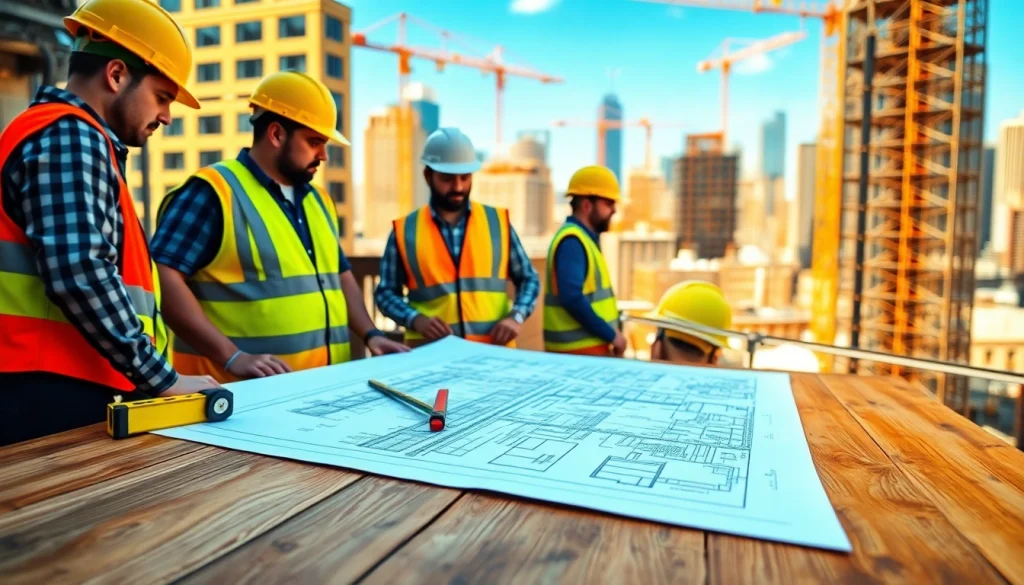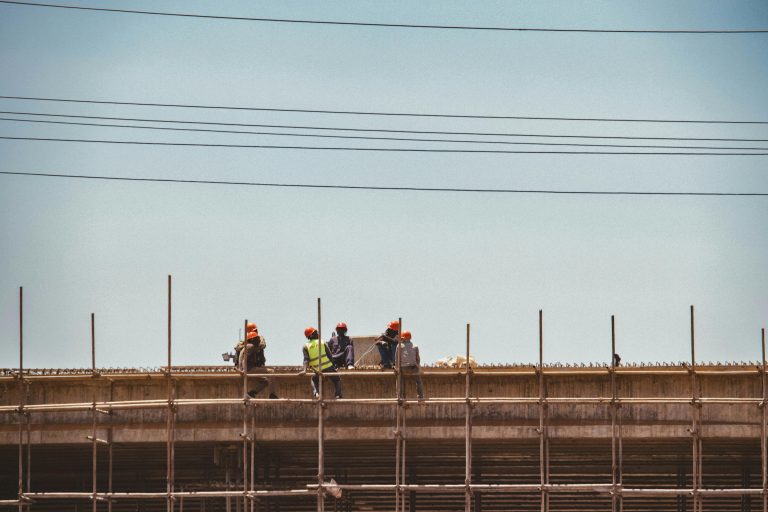
Understanding the Role of a Manhattan General Contractor
Choosing the right construction professional is essential for ensuring that your project is executed seamlessly. A Manhattan General Contractor plays a pivotal role in both residential and commercial construction, as they oversee various aspects of the building process. This guide delves deep into the responsibilities, challenges, and essential considerations surrounding the role of general contractors in Manhattan.
Key Responsibilities and Functions
The primary responsibility of a general contractor is to manage the day-to-day operations of a construction project. This involves a combination of technical skills, project management capabilities, and strong leadership. Below are the key functions they perform:
- Project Planning: General contractors initiate the development of a comprehensive project plan that outlines timelines, budget estimates, and resource allocation.
- Hiring Subcontractors: They are responsible for hiring and managing subcontractors who specialize in different aspects of construction, such as plumbing, electrical work, and carpentry.
- Communication: Maintaining open channels of communication with clients, subcontractors, and suppliers is vital for project success.
- Site Supervision: Ensuring that work progresses according to schedule and that quality standards are met is a critical function of a general contractor.
- Problem-Solving: Unforeseen issues often arise, and a competent general contractor must quickly devise solutions while keeping the project on track.
Differences Between Contractors and Subcontractors
Understanding the distinction between contractors and subcontractors is crucial for anyone engaging in a construction project:
- General Contractors: They oversee the entire project and are responsible for its completion. They coordinate all activities, manage the budget, and ensure compliance with regulations.
- Subcontractors: These specialized professionals handle specific tasks within a project. For example, an electrician, plumber, or roofer may fall under this category, working under the guidance of a general contractor.
Importance of Communication and Coordination
Effective communication is the backbone of any successful construction project. A general contractor must keep all parties informed and ensure proper coordination among subcontractors. This can help in anticipating challenges, addressing concerns, and maintaining a collaborative atmosphere that fosters timely project execution.
How to Select the Right Manhattan General Contractor
When it comes to hiring a general contractor in Manhattan, the selection process requires careful consideration. Here are several steps to guide you in choosing the right professional for your construction project:
Evaluating Credentials and Experience
A contractor’s credentials can be an indicator of their reliability and quality of work. Consider the following:
- Licensing: Ensure that the contractor is licensed to operate in New York City. Check state and local regulations to verify their legal standing.
- Experience: Look for contractors with a solid track record in handling projects similar to yours. Experience demonstrates their expertise in navigating challenges specific to the local environment.
- Certifications: Additional certifications from reputable industry organizations can be a plus, showcasing commitment to best practices and ongoing education.
Checking References and Previous Work
Before making a final decision, ask for references from past clients. This not only provides insight into the contractor’s work ethic and quality but also allows you to gauge their ability to meet deadlines and budgets. Additionally, visiting previous project sites can offer a tangible sense of their standard and style.
Understanding Licensing and Insurance Requirements
Licensing and insurance are vital components when selecting a contractor. Always verify general liability and worker’s compensation insurance—this protects both you and the contractor in case of accidents or unexpected incidents on-site. Moreover, understanding local licensing requirements can prevent future legal complications.
Common Challenges Faced in Construction Projects
Every construction project faces unique challenges. Below are some common obstacles that contractors encounter, along with strategies to overcome them:
Managing Timelines and Deadlines
Adhering to project timelines is often a significant challenge. Various factors, such as weather conditions or material availability, can cause delays. Creating a detailed schedule that includes buffer periods for unforeseen issues and closely monitoring progress can assist in keeping the project on track.
Budget Overruns and Cost Management
Cost overruns can derail a project’s financial viability. Effective budgeting should include detailed estimates, a contingency fund for unexpected expenses, and regular financial reviews to identify potential overruns early. Open communication regarding budgetary changes with clients can help manage expectations.
Weather and Site Conditions
Construction zones are often affected by environmental factors. Contractors should monitor weather forecasts and schedule work accordingly. Understanding site-specific conditions, such as soil stability or drainage capabilities, is crucial for development.
Best Practices for Working with a Manhattan General Contractor
Building a productive relationship with your general contractor is vital for project success. Here are best practices to follow:
Setting Clear Expectations from the Start
Communicating your vision and expectations clearly from the outset can help prevent misunderstandings later. Create a contract that clearly delineates project scope, deliverables, timelines, and budgets.
Regular Check-Ins and Progress Updates
Establishing a routine for progress updates ensures that all parties remain informed. Regular check-ins allow for transparency regarding project milestones and can foster a collaborative environment for problem-solving.
Using Technology for Increased Efficiency
Leveraging technology, such as project management software andBuilding Information Modeling (BIM), can contribute significantly to project efficiency. These tools enhance collaboration among stakeholders and lead to smoother workflow management.
Evaluating Project Success and Outcomes
After project completion, assessing its success is essential. This involves looking at multiple factors to understand the overall performance:
Defining Success Metrics for Projects
Before starting a project, define what success looks like in terms of quality, budget adherence, and timeline. Having specific metrics can help in evaluating outcomes and setting benchmarks for future projects.
Post-Project Review and Feedback
Conducting a post-project review can help identify areas of success as well as opportunities for improvement. Gathering feedback from team members, subcontractors, and clients can provide valuable insights and enhance future project execution.
Building Long-Term Relationships with Contractors
Successful collaborations can lead to long-term partnerships. Maintaining a proactive approach after project completion, such as checking in or recommending the contractor to others, can foster a mutually beneficial relationship.



